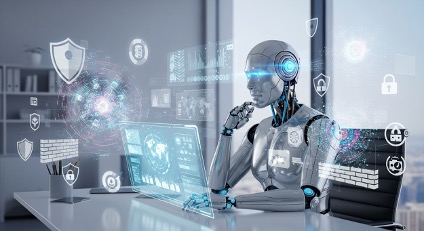
AI platform security is a complex issue, hinging on how well these systems comply with stringent data privacy regulations like the GDPR and CCPA. While leading AI providers invest heavily in security measures, the core challenge lies in the data-hungry nature of AI itself. True security and compliance depend on the platform's ability to uphold principles of data minimization, purpose limitation, transparency, and user rights, which can sometimes be at odds with how AI models are trained and function.
Artificial Intelligence is no longer science fiction; it's woven into the fabric of our daily digital lives. From personalized recommendations to sophisticated business analytics, AI is a powerful engine of innovation. But what fuels this engine?
Our data.
This simple fact raises a critical question that everyone, from CEOs to everyday consumers, should be asking: How secure are the AI platforms handling our information? The answer lies in a complex intersection of technology, ethics, and law, specifically landmark regulations like the General Data Protection Regulation and the California Consumer Privacy Act. Let's take a look at AI Compliance and what it means for our data privacy.
At its core, AI learns by analyzing massive datasets. The more data a model processes, the smarter and more accurate it becomes. This creates a fundamental tension. For an AI to be effective, it needs access to vast quantities of information, which can include personal, sensitive, and proprietary data. This necessity is where AI platform security and AI data privacy become paramount.
Without robust security and clear privacy protocols, this data can be exposed to breaches, misuse, or unauthorized access. The challenge for developers of secure AI solutions is to build platforms that are both powerful and principled, capable of driving progress without compromising the privacy of the individuals whose data they rely on.
To understand AI security, we first need to understand the rules of the road. Two major regulations set the global standard for data privacy:
Both regulations impose hefty fines for non-compliance, forcing companies that use AI to take data protection very seriously.
Applying these regulations to AI isn't always straightforward. The very nature of some AI models can clash with legal requirements, creating unique compliance hurdles.
A key area of concern is the "black box" problem. Many advanced AI models, particularly in deep learning, are so complex that even their creators can't fully explain how they arrived at a specific conclusion. This directly challenges the GDPR's "right to explanation," which suggests individuals have a right to understand the logic behind automated decisions that affect them. Achieving GDPR compliance AI means developing more transparent and interpretable models.
Furthermore, the principle of "data minimization" collecting only the data that is strictly necessary can be difficult to reconcile with an AI's need for large, diverse datasets. Similarly, "purpose limitation" is tricky when data collected for one purpose might be used to train an AI for an entirely different function down the line. Effective CCPA AI compliance and AI Compliance in general requires a careful, documented approach to data governance from the very beginning.
So, how can a business or individual evaluate if an AI platform is secure and compliant? Look for secure AI solutions that prioritise the following:
While these points provide a great checklist, seeing them in practice offers even greater clarity. A tangible example of this commitment to security is how MeBeBot approaches compliance. MeBeBot protects customer data through its SOC 2 Type 2 certification.
But what does this mean in plain English?
A SOC 2 report is an audit developed by the American Institute of CPAs (AICPA) that evaluates how a service organisation manages customer data. It's based on five "Trust Services Criteria": security, availability, processing integrity, confidentiality, and privacy.
The "Type 2" designation is crucial. A Type 1 report only assesses the design of security controls at a single point in time. A Type 2 report, however, confirms the operational effectiveness of those controls over a prolonged period (e.g., six months to a year).
This independent validation means that MeBeBot customers don't just have to take their word for it; they have third-party assurance that their data, and their employee’ data, is being managed according to the highest security standards. This level of certification is a powerful indicator of a truly secure AI solution.
The conversation around AI platform security and privacy is only just beginning. As AI technology becomes more powerful and regulations evolve, the need for ethical and secure development will grow. The future lies in "Privacy by Design," where data protection is not an afterthought but a core component of the AI development lifecycle. Ultimately, the most successful and enduring AI platforms will be those that prove security and privacy are not features, but the very foundation upon which their intelligence is built.